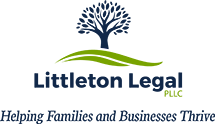Oklahoma’s population is experiencing growth not seen in decades as people move here in pursuit…

When Life’s Storms Strike: A Broken Arrow Trust Lawyer’s Guide to Protecting Your Estate and Insurance Coverage
In the wake of recent natural disasters across the country, social media has spread misinformation suggesting that properties held in trusts are not eligible for insurance coverage. This claim is inaccurate.
Coverage gaps may occur if your trust is not properly listed on your homeowner’s insurance.
Depending on your policy’s fine print and the insurer’s willingness to act in good faith after a weather event, you can maintain comprehensive coverage by taking the right steps.
(Note: Similar considerations apply to properties held in LLCs, which have their own specific requirements.)
Understanding the Ownership-Insurance Connection
Insurance policies require the owner to have an “insurable interest” in the property. This prevents fraud. Your policy might ask you to notify the insurer if the property’s owner changes.
When you put your home into a trust, the legal owner changes from you to the trust.
Some policies don’t require extra steps when you transfer your home to a revocable living trust because the insurer knows the real owner hasn’t changed.
Revocable living trusts are called “grantor trusts.” The person who creates, manages, and benefits from the trust is legally the same as the trust for tax and asset protection.
But most insurance companies require action when you create an irrevocable trust. This is because the interested parties might be different.
Irrevocable trusts often protect assets.
This difference can confuse insurance staff, especially when they have many claims to handle after a disaster.
How to Fix This
The fix is simple: add your trust as an additional insured on your policy.
This protects both you and the trust. It prevents coverage gaps, delays, or denied claims after disasters.
Most insurers don’t charge extra to add your trust as an insured.
Trust Maintenance Is Ongoing
Many people think setting up a trust is a one-time event. In reality, estate planning is ongoing. Maintaining your estate plan is just as important as creating it.
You should update your trust if your goals or needs change. But remember, a trust only covers assets it owns or that pay into it at your death.
To make your estate plan work, you must properly fund your trust. That means when you buy property, change banks, start businesses, or get new life insurance, you do so in line with your estate plan.
At Littleton Legal, we recommend clients:
- Review their estate plans after major life events or every five years.
- Check their assets annually to confirm ownership and beneficiary designations still match their intentions.
If you haven’t reviewed your trust or asset details recently, take time to update them now.
Also, when reviewing your estate plan, contact your insurance agent. Make sure your policies list your trust as an insured and that coverage is current.
Taking Action to Protect Your Assets
We’ve helped many Oklahoma families protect assets through trust planning. If your insurance doesn’t list your trust, contact your insurer to add it.
If your home isn’t in a trust, creating one can help you avoid guardianship if you become incapacitated and probate after death. It also helps pass assets to your heirs with tax planning and asset protection that reduce costs and conflicts.
Many clients say the process is easier than expected and brings peace of mind.
Ready to ensure your property is properly protected?
Our firm regularly guides clients through the complexities of estate planning and property ownership, including the critical role insurance plays in asset protection.
If you have any questions about your coverage as it relates to your estate plan or estate planning in general, please don’t hesitate to contact our office at (918) 608-1836 or click here to schedule a consultation.



